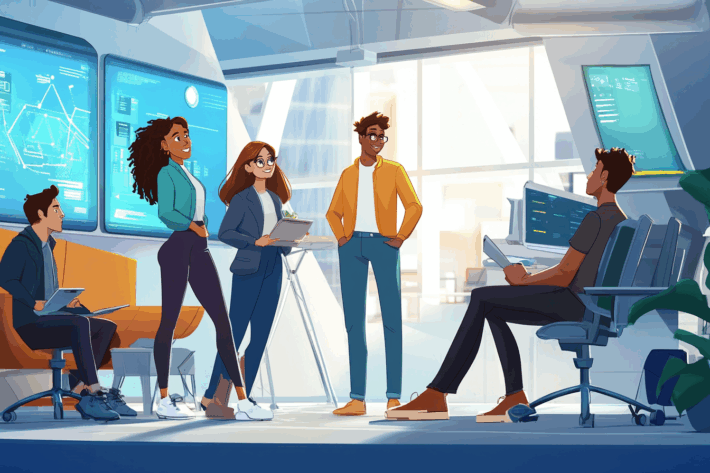As the workplace continues to evolve, the expectations of leadership are undergoing a significant transformation, largely due to the rise of Millennials and Gen Z in the workforce. These younger generations bring with them a unique set of values, perspectives, and expectations, which are reshaping traditional notions of leadership. In this article, we will explore how Millennials and Gen Z are redefining leadership expectations and what this means for the future of work.
The Influence of Millennials and Gen Z
Millennials, born between 1981 and 1996, and Gen Z, born after 1997, make up a significant portion of the global workforce. Together, these generations bring a fresh perspective to the workplace, driven by their unique experiences, values, and technological savvy. As these generations continue to ascend into leadership positions, their influence on workplace dynamics and organisational culture becomes increasingly pronounced.
Emphasis on Collaboration and Inclusivity
One of the hallmarks of the next-gen leadership mindset is a strong emphasis on collaboration and inclusivity. Millennials and Gen Z grew up in an interconnected world, where digital platforms enable seamless communication and collaboration across geographical boundaries. As a result, they value teamwork and shared decision-making, and they expect their leaders to foster an inclusive and diverse environment where all voices are heard and valued. This shift in emphasis from traditional hierarchical structures to more collaborative and egalitarian models of leadership is redefining how organisations operate and structure their teams.
Purpose-Driven Leadership
Another key expectation that sets Millennials and Gen Z apart from previous generations is their emphasis on purpose-driven leadership. Unlike their predecessors, who often prioritized financial success and stability, younger generations are more inclined to seek meaning and purpose in their work. They are drawn to leaders who demonstrate a strong sense of social responsibility, ethical conduct, and a commitment to making a positive impact on society and the environment. As a result, next-gen leaders are expected to align their organizational strategies with a broader social and environmental purpose, demonstrating a genuine commitment to making the world a better place.
Technological Fluency and Adaptability
The digital revolution has significantly shaped the experiences and expectations of Millennials and Gen Z, making them highly tech-savvy and adaptable. As such, they expect their leaders to possess a similar level of technological fluency and agility. Next-gen leaders are expected to embrace and leverage advanced technologies to drive innovation, enhance productivity, and create seamless digital experiences for both employees and customers. Furthermore, they are expected to demonstrate a high degree of adaptability in the face of rapid technological change, being open to new ideas and ways of working.
Transparency and Authenticity
Transparency and authenticity are also highly valued by Millennials and Gen Z in their leaders. They expect openness and honesty in communication, and they value leaders who are transparent about company decisions, challenges, and opportunities. Authenticity is key, as younger generations are adept at detecting insincerity and inauthenticity. They seek leaders who are genuine, approachable, and willing to show vulnerability. This shift towards transparent and authentic leadership is reshaping the traditional notion of leaders as distant and unapproachable figures, fostering more genuine and meaningful connections between leaders and their teams.
Flexibility and Work-Life Integration
The concept of work-life balance has evolved into work-life integration for Millennials and Gen Z. These generations seek greater flexibility in how, when, and where they work, and they expect their leaders to support and facilitate this flexibility. Next-gen leaders are expected to champion policies and practices that enable a healthy integration of work and personal life, recognizing that a balanced and flexible approach to work leads to higher levels of engagement and well-being among employees. This expectation is driving a fundamental shift in organisational cultures and pushing leaders to reassess their approach to managing and supporting their teams.
Conclusion
In conclusion, the rise of Millennials and Gen Z in the workforce is reshaping traditional leadership expectations and demanding a new approach to leadership. Next-gen leaders are expected to embody collaboration, inclusivity, purpose-driven leadership, technological fluency, transparency, authenticity, and flexibility. Organisations that recognise and adapt to these evolving expectations stand to benefit from increased employee satisfaction, enhanced innovation, and a more resilient and adaptive organisational culture. As Millennials and Gen Z continue to ascend into leadership roles, their influence on workplace dynamics and organisational culture will only continue to grow, shaping the future of work for years to come.

